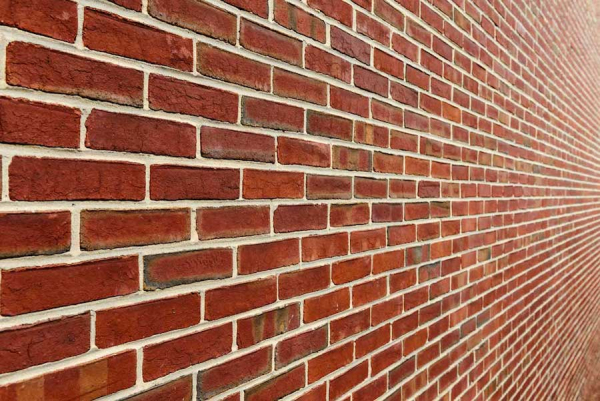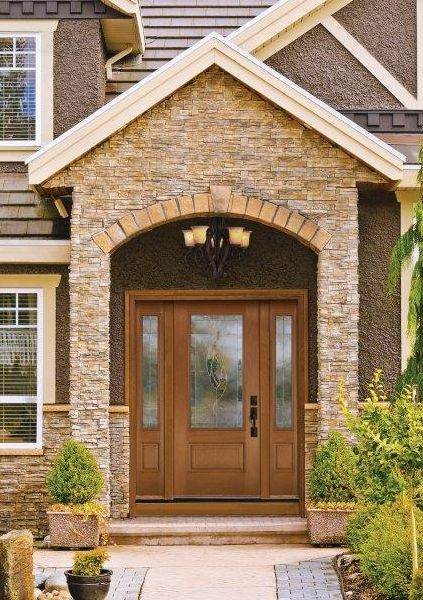Hiring a good tuckpointing contractor is crucial for several reasons:
Quality Workmanship: Tuckpointing is a specialized skill that involves repairing and restoring the mortar joints in brick or stone masonry. A skilled contractor will have the expertise and experience to perform the work with precision, ensuring that the finished product looks good and functions effectively.
Structural Integrity: Tuckpointing plays a significant role in maintaining the structural integrity of a building. When mortar joints deteriorate, it can lead to water infiltration, which can cause further damage to the masonry, compromising the stability of the structure. A good contractor will properly assess the condition of the mortar and provide the necessary repairs to ensure the building's stability.
Water Resistance: Tuckpointing is essential for maintaining the water resistance of a building. Properly repaired mortar joints help prevent water from seeping into the walls, which can lead to mold growth, rot, and other moisture-related problems. A skilled contractor will use the right materials and techniques to create a watertight seal.
Aesthetic Appeal: Tuckpointing is not just about functionality; it also contributes to the appearance of a building. A skilled contractor can match the new mortar color and style to the existing masonry, ensuring a seamless and attractive finish. This attention to detail can enhance the curb appeal and value of the property.
Longevity: When tuckpointing is done correctly, it can extend the life of a building's masonry. A good contractor will use high-quality materials and craftsmanship that can withstand the test of time, reducing the need for frequent repairs.
Cost-Efficiency: While hiring a highly skilled tuckpointing contractor may come with a higher upfront cost, it can ultimately save you money in the long run. Properly executed tuckpointing can prevent more extensive and costly repairs or replacements down the road.
Compliance with Codes and Regulations: A reputable contractor will be knowledgeable about local building codes and regulations related to tuckpointing. Hiring a professional ensures that the work is done in compliance with these standards, reducing the risk of legal issues or penalties.
Safety: Tuckpointing often involves working at heights and using specialized equipment. A professional contractor will prioritize safety by following industry best practices, reducing the risk of accidents or injuries during the project.
In summary, hiring a good tuckpointing contractor is essential to ensure the longevity, structural integrity, and aesthetic appeal of your building. It's an investment in the maintenance and preservation of your property, which can save you money and headaches in the long term. When choosing a contractor, be sure to research their qualifications, check references, and ask for examples of their past work to ensure you're hiring the right professional for the job.
Having a high-quality roof is essential for various reasons, as it plays a crucial role in protecting your home and ensuring its longevity. Here are some of the key reasons why having a great-quality roof is important:
Weather Protection: A durable and well-maintained roof protects against the elements, including rain, snow, wind, hail, and extreme temperatures. It helps keep your home dry and comfortable, preventing water damage and leaks that can compromise the structural integrity of your property.

Structural Integrity: The roof is integral to your home's structure. A high-quality roof contributes to the overall stability and strength of your house, preventing structural issues that could be costly to repair.
Energy Efficiency: An energy-efficient roof can help regulate your home's temperature, reducing the need for excessive heating or cooling. This can result in lower energy bills and a reduced carbon footprint.
Longevity: High-quality roofing materials and proper installation can significantly extend the lifespan of your roof. Investing in a great quality roof can save you money on frequent repairs and replacements over the long term.
Home Value: A well-maintained and attractive roof can enhance the curb appeal of your home. When it comes time to sell your property, a great quality roof can increase its market value and make it more appealing to potential buyers.
Safety and Health: A roof in good condition helps maintain a safe and healthy indoor environment. It prevents water intrusion and the growth of mold and mildew, which can have adverse effects on your health and the structural integrity of your home.
Insurance Benefits: Some insurance companies offer lower premiums to homeowners with high-quality roofs because they are less likely to file claims for damage caused by weather events.
Peace of Mind: Knowing you have a reliable roof over your head can provide peace of mind. You won't have to worry about sudden leaks or expensive repairs due to roofing issues.
Environmental Impact: Environmentally friendly roofing materials can contribute to sustainability efforts by reducing the environmental footprint of your home and helping conserve energy.
Compliance with Building Codes: Many local building codes and regulations require homes to have a certain standard of roofing quality. Ensuring your roof meets these standards is essential for compliance and safety.
In summary, having a great quality roof is crucial for protecting your home, ensuring its longevity, improving energy efficiency, maintaining property value, and providing peace of mind. Regular maintenance and periodic inspections are also essential to keep your roof in excellent condition and address any issues promptly
Preparing your home's siding for Chicago winters is important to ensure that it can withstand the harsh weather conditions, including cold temperatures, snow, and ice. Here are some steps you can take to prepare your siding for the winter:
-
Inspect Your Siding: Before winter arrives, inspect your siding for any damage, such as cracks, chips, or loose panels. Address any issues you find, as winter weather can exacerbate existing problems.
-
Clean Your Siding: Use a power washer or a hose with a siding cleaning solution to remove dirt, mildew, and mold. Clean siding helps maintain its integrity and appearance.
-
Trim Trees and Shrubs: Trim any trees or shrubs near your home that may come into contact with your siding during heavy snow or ice accumulation. This can help prevent damage from falling branches.
-
Seal Gaps and Cracks: Inspect your siding for any gaps or cracks where cold air and moisture can enter. Use caulk or weatherstripping to seal these gaps, helping to improve energy efficiency and prevent drafts.
-
Inspect and Repair Paint or Stain: If your siding is painted or stained, check for any areas where the finish is peeling or damaged. Repaint or restain as needed to protect the siding from moisture.
-
Consider Insulation: If you have older siding or live in a particularly cold part of Chicago, consider adding insulation beneath your siding. This can help improve energy efficiency and keep your home warmer in the winter.
-
Clear Debris: Make sure that there's no debris, leaves, or other materials trapped between the siding and your home. These can trap moisture and cause damage over the winter.
-
Protect Against Ice Dams: Ice dams can form on your roof and potentially damage your siding as melting snow refreezes. Make sure your attic is well-insulated and ventilated to prevent ice dams.
-
Snow Removal: After a heavy snowfall, it's important to clear snow away from your siding to prevent moisture from seeping in. Use a roof rake or snow blower to safely remove snow.
-
Consider Storm Windows or Shutters: Storm windows and shutters can add an extra layer of protection to your siding, reducing heat loss and providing additional insulation.
-
Keep Gutters Clean: Properly functioning gutters and downspouts can help direct water away from your siding. Make sure they are clean and in good working order.
-
Regular Maintenance: Perform regular maintenance on your siding throughout the winter, checking for any issues and addressing them promptly.
-
Professional Inspection: If you're unsure about the condition of your siding or need assistance with any repairs or improvements, consider hiring a professional siding contractor to inspect and prepare your siding for winter.
By taking these steps to prepare your siding for Chicago winters, you can help protect your home and maintain its appearance and integrity throughout the cold season.




